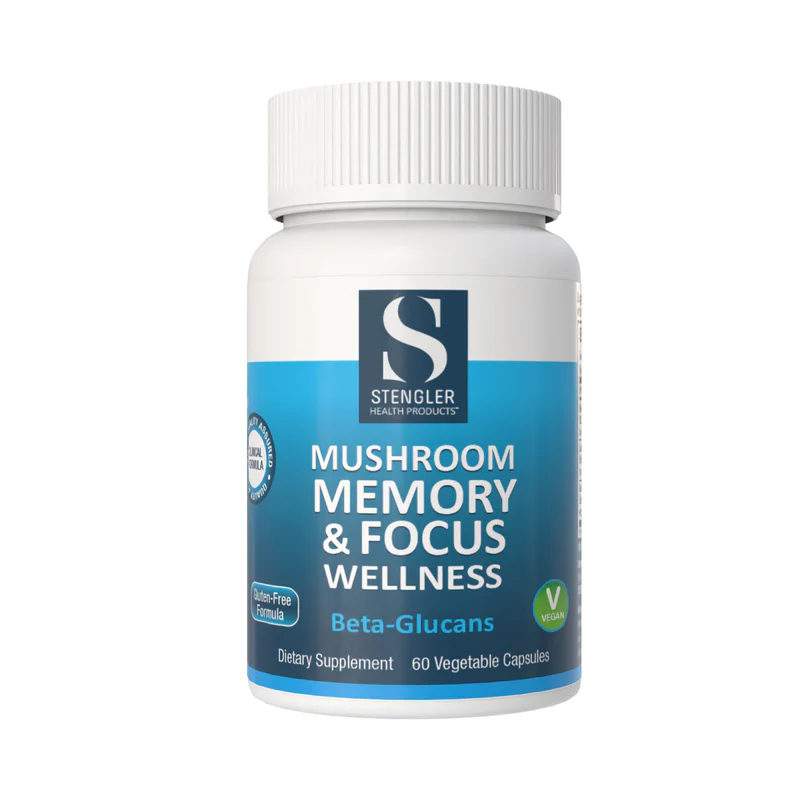
The Golden Oyster mushroom (Pleurotus citrinopileatus) is more than just a beautiful, yellow fungus; it is a powerful "functional food" rich in compounds that can significantly benefit brain health. While its culinary uses have been enjoyed for centuries, modern research is now highlighting its potent antioxidant properties and its unique role in supporting cognitive function, particularly through a remarkable compound called ergothioneine.
The Golden Oyster mushroom is packed with beneficial nutrients and bioactive compounds that make it a standout for overall wellness:
Ergothioneine is a fascinating compound because of its ability to cross the blood-brain barrier and its high distribution within the brain. It is a powerful antioxidant and anti-inflammatory agent, and its protective roles include:
Numerous studies have drawn a clear link between ergothioneine levels and cognitive health, particularly in the aging population:

The Golden Oyster mushroom and its primary active compound, ergothioneine, represent a compelling new frontier in natural cognitive support. The evidence is mounting that this underrecognized dietary micronutrient is crucial for healthy aging and offers significant protective benefits against cognitive decline and neurodegeneration. By incorporating foods rich in ergothioneine, such as Golden Oyster mushrooms, into our diet and supplements, we can support healthy brain function. This is why it is one of the main ingredients in my popular formula: Mushroom Memory & Wellness formula.
References
Apparoo, Y., Phan, C. W., Kuppusamy, U. R., & Sabaratnam, V. (2022). Ergothioneine and its prospects as an anti-ageing compound. Experimental gerontology, 170, 111982. https://doi.org/10.1016/j.exger.2022.111982
Beelman, R. B., Kalaras, M. D., Phillips, A. T., & Richie, J. P., Jr (2020). Is ergothioneine a 'longevity vitamin' limited in the American diet?. Journal of nutritional science, 9, e52. https://doi.org/10.1017/jns.2020.44
Halliwell, B., & Cheah, I. (2024). Are age-related neurodegenerative diseases caused by a lack of the diet-derived compound ergothioneine?. Free radical biology & medicine, 217, 60–67. https://doi.org/10.1016/j.freeradbiomed.2024.03.009
Tiupova, A., Olędzki, R., & Harasym, J. (2025). Physicochemical, Functional, and Antioxidative Characteristics of Oyster Mushrooms. Applied Sciences, 15(3), 1655. https://doi.org/10.3390/app15031655
Wu, L.-Y., Kan, C. N., Cheah, I. K., Chong, J. R., Xu, X., Vrooman, H., Hilal, S., Venketasubramanian, N., Chen, C. P., Halliwell, B., & Lai, M. K. P. (2022). Low Plasma Ergothioneine Predicts Cognitive and Functional Decline in an Elderly Cohort Attending Memory Clinics. Antioxidants, 11(9), 1717. https://doi.org/10.3390/antiox11091717
Yau YF, Cheah IK, Mahendran R, et al. Investigating the efficacy of ergothioneine to delay cognitive decline in mild cognitively impaired subjects: A pilot study. Journal of Alzheimer’s Disease. 2024;102(3):841-854. doi:10.1177/13872877241291253